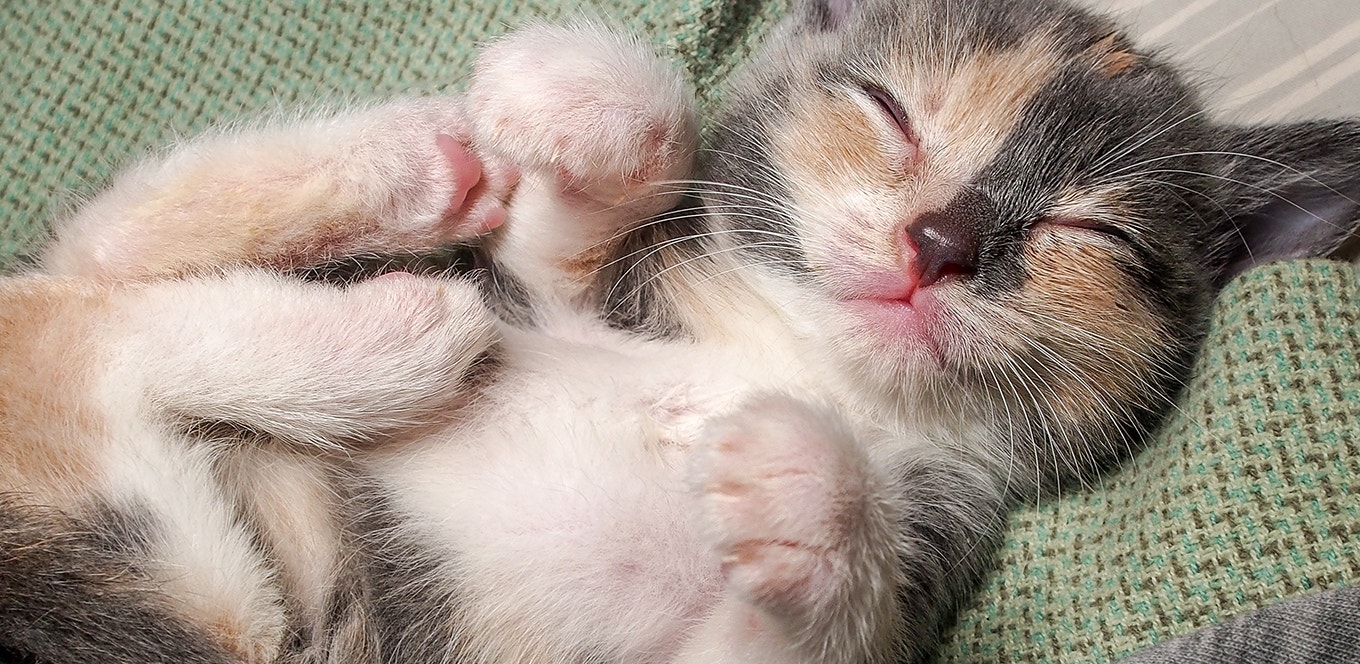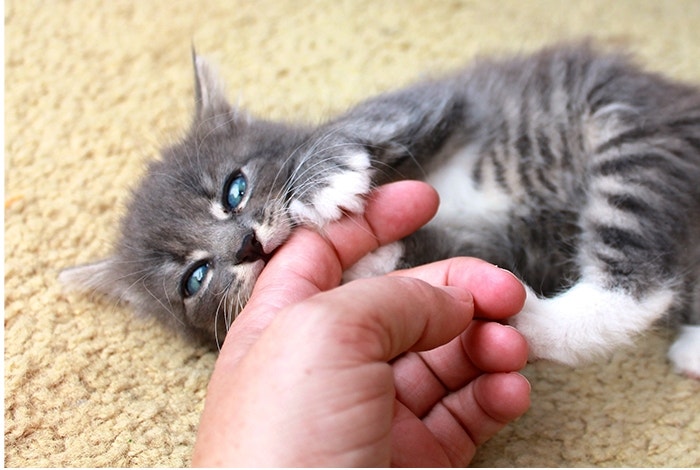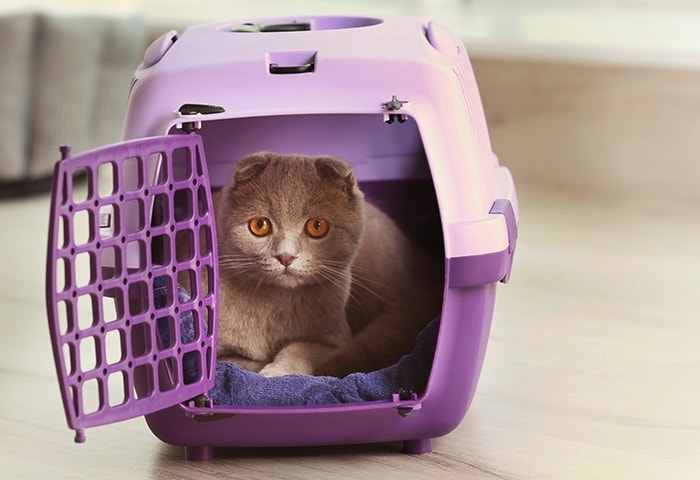
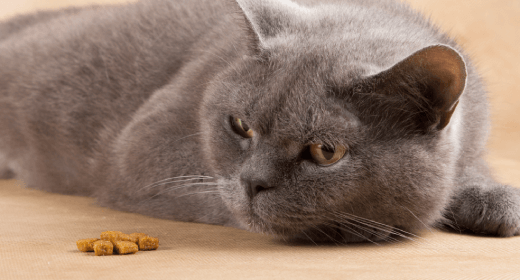
Cats are known to be finicky and picky about a lot of things. Their pickiness in terms of toys and activities is fine and completely natural; if it extends to their eating, things could get a little concerning. If your cat is a picky eater, you can try a few remedies such as serving them different food items. If they still turn away from the food served, you should consult a vet. However, before drawing any conclusions, it is necessary to understand that it is in a cat’s nature to be fussy. And while your feline friend may be stubborn initially, they tend to adapt to a set routine eventually. So, here is a brief guide to help you better understand your cat’s pickiness about food.
There are certain reasons why your cat turns from the food served. This behaviour may not necessarily indicate that your cat is a finicky eater.
If your cat is refusing to eat food served to them, it is possible that they are not hungry. Some possible reasons for this could be that they have been munching throughout the day and have had a lot of treats. If your cat does roam around outdoors by themselves, it is entirely possible that they switched to their hunting instincts and caught prey.
If you notice your cat has not eaten in more than 24 hours, it might be a sign of an underlying weakness and it is best to consult a vet in this matter.
Improper routine
Despite being finicky, cats are creatures who thrive on routine. So, when it comes to their daily feeding, it is best to establish a routine and stick to it. If your cat is not served meals at regular times, they may refuse to eat.
If you have not cleaned your cat’s serving plate before pouring in their food, they may not enjoy the meal. Cats may refuse to eat out of a soiled bowl or plate, so ensure that your pet’s serving dish is always clean.
A lot of cats tend to enjoy eating alone. They do not like consuming meals in the presence of others or being the centre of attention during meal times.
If your cat starts eating less, you may want to look for a factor that could be causing stress. Has another animal been added to the household? Has a family member left or died? Have the cat's surroundings changed, such as a move to a new house? When the stress is removed, your cat will probably go back to a normal diet. If your cat seems healthy, happy, and lively, and has a good coat and clear eyes, there is little cause for concern. Cats also have an uncanny ability to smell changes in the world around them. Even a new bowl can disturb a cat's eating habits. Some cats refuse to eat from plastic or hard rubber bowls.
Medical factors also could contribute to a change in your cat’s eating habits. The only way to verify this is to visit a veterinarian. If the medical examination does not verify that a problem exists, your cat may be manipulating you in grand style!
If your cat is a picky eater and it’s tough to get them to finish a meal, here are some tips you could try:
Heat wet food before serving
Cats have a strong sense of smell and enjoy food by its aroma. If the wet food you served them has gone cold, it may not give off the aroma that cats love. So, heating the meal a little may help.
Clean the serving dish/bowl
Since cats have a strong sense of smell, they will know if their serving bowl is unclean. If so, it can quickly kill their appetite and they may turn away from the food. So, ensure that you always serve meals to your cat in a clean dish/bowl.
Add chicken broth/tuna water/cat oil to their food
Try to entice your cat to eat food by adding a little amount of warm chicken broth, tuna water, or cat oil to the meal. This will significantly improve the smell of the food for the cats. However, do be sure to never serve anything containing onions, chives, or garlic, as these ingredients can be harmful to a cat.
Try different foods
If your cat is still refusing to eat, it may be time to change the food. You may have to try a different product and hope your pet likes the new one.
If despite trying everything your cat still won’t eat, it is time to consult your vet. Also, if your cat has gone more than 24 hours without eating anything, you should visit the vet immediately as your pet could be ill.
If your cat is set on a routine that needs to be changed, make the change slowly and gradually. Your cat may not like a sudden switch in things and can continue to refuse to eat. If you wish to switch your fur baby over to different food, start off by mixing a little quantity of the new food with their current food, over the span of a few days. Gradually, increase the quantity of the new food item until it is the only thing being served.
Switching to a new cat food can be tough. IAMS™ recognises that caring cat owners want to have the option of feeding their pet a more varied diet. IAMS cat foods offer a number of nutritional choices for your cat, including dry and canned foods, naturally preserved diets, and options for overweight cats or cats with reduced activity levels. All IAMS™ cat foods are complete and balanced for specific lifestyles and life stages. Consult your veterinarian or a Pet Professional at The IAMS Company to discuss the best selection for your cat.
Here are some more things you need to keep in mind as a cat parent.
Make sure that your cat has a quiet, comfortable place to eat.
And remember, your cat needs to visit the veterinarian regularly. Regular visits help keep your cat happy and healthy!

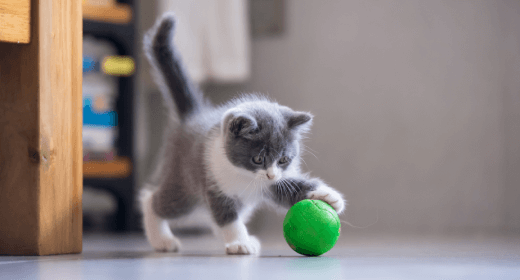
Your kitten is one of a kind, not to mention adorable. But training your li’l baby comes with some basic guidelines. Scroll on for a handful of our favorite kitten training tips.
Introduce your new kitten to their litter box as soon as they get home. Then always set your cat in their box right after meals and as soon as they wake up from naps.
And don’t forget to reward your kitten with a treat, toy or some extra love after they use it.
Kitty, meet litter.
Litter, meet kitty.
When Kitty forgets their manners and bites you or shows their aggressive side, say “ow” or “no” clearly and sternly.
Then slowly remove your hand — or other body part — from their razor-sharp clutches. Pick up your kitten, place them away from you, walk away and ignore them.
You can also redirect them to a feather wand or another toy or activity if you want. But that’s your call.
Ouch!
That’s my hand,
not a treat, tiny cat.
By giving your little feline lots of sturdy scratching posts throughout your house, especially where they like to hang out, you can save your favorite furniture from unwanted claw marks and damage.
Oh, and be sure to trim your kitten’s nails regularly.
Say it with me:
Sofas are NOT
scratching posts.
Teach your kitten that their cat carrier is a safe, comfortable place to chillax and feel protected.
Trust us, by making a carrier part of your fuzzball’s daily life, road trips and vet visits will be easier and safer for years to come.
Cozy up,
Buttercup.
It's midnight. Bring on the zoomies, furry one.
(Actually, please don’t.)
Want to stop your kitten from bouncing off the walls while you’re supposed to be deep in slumber land? Try these tips.
Have a long play session later in the evening.
Feed your feline a big meal of delicious, nutritious Opens a new windowIAMS™ Healthy Kitten or PERFECT PORTIONS™
Spend 15 minutes of purr-worthy snuggle time before you hit the hay.
Yep, it’s true! One of our favorite Opens a new windowstudies from the University of South Australia proved it.
To help train your kitten, pick the word that best describes them:
These anxious felines tend to run away when the doorbell rings and are fearful of new situations.
The key to training a skittish kitty? Practice lots of patience and never force them to face their fears, like meeting your house guests after they’ve already runaway and hidden.
Some call them nosy, but we call them fearless. Outgoing kitties are curious and adventurous. They love to explore and get into everything — and they sometimes act naughty because they’re bored.
One of the tricks to training an outgoing kitten is to give them lots of toys and actively play with them. It stimulates their mind and helps burn off energy.
“Bossy” best describes these kitties. They bully other cats (and even other pets) and hog things like food bowls, toys and litter boxes.
If your kitten fits this category, be consistently firm and make sure you play with them regularly so they have less energy to be aggressive.
You might also want to make sure your little CEO (Cat Executive Officer) has their own food bowl, water bowl and litter box.
Two words describe these felines: impulsive and erratic. Their behavior and moods are unpredictable, even if they’ve encountered the same situation before.
When training, never raise your voice — it’ll just ramp up your kitty’s nerves and make them more erratic.
Also, be sure to stick to a consistent daily schedule for feeding and playtime so your little fuzzball knows what to expect and doesn’t get stressed out.
This personality is every cat lover’s dream.
These sweeties can usually be found curling up against your shins, meowing loudly and purring away.
The key to training these kittens is to never yell and to socialize them early and often. That way, they’ll continue to be everyone’s best friend for life.
You had me at
meow, li’l feline.
